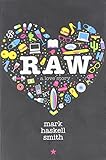
1.
 Each age furnishes new material for its own Dunciad, Alexander Pope’s great satire in which the world is ruled by the goddess of “Dulness” and the King of Dunces, an “Antichrist of wit.” In the poem, an “endless band” of Grub Street scribblers, poets, critics, and booksellers abase themselves in “high heroic games” to prove “who the most in love with dirt excel/Or dark dexterity of groping well.” The competitions for these hacks include: an attempt to drown out a braying donkey with their jabbering (“So swells each windpipe; ass intones to ass”); a foot-race whose eventual winner is reenergized after falling into a sewer (“Renew’d by ordure’s sympathetic force/ As oil’d with magic juices for the course”); and a dive into the Fleet Ditch, a contest wherein “Who but to sink the deeper, rose the higher.”
Each age furnishes new material for its own Dunciad, Alexander Pope’s great satire in which the world is ruled by the goddess of “Dulness” and the King of Dunces, an “Antichrist of wit.” In the poem, an “endless band” of Grub Street scribblers, poets, critics, and booksellers abase themselves in “high heroic games” to prove “who the most in love with dirt excel/Or dark dexterity of groping well.” The competitions for these hacks include: an attempt to drown out a braying donkey with their jabbering (“So swells each windpipe; ass intones to ass”); a foot-race whose eventual winner is reenergized after falling into a sewer (“Renew’d by ordure’s sympathetic force/ As oil’d with magic juices for the course”); and a dive into the Fleet Ditch, a contest wherein “Who but to sink the deeper, rose the higher.”
Pope’s “true dunces” display a heroic devotion to abjection that has its own kind of purity, a purity that rivals (even as it parodies) the dedication of a talented writer in thrall to the “reckless consciousness of art” (as Henry James puts it in “The Next Time.”) We take for granted the difficulty of ascending to the empyrean heights of genius, but descending into the “majesty of mud” poses its own challenges for those unpure hacks not blessed “with all the might of gravitation.” Or to put it in distinctly non-Augustan terms, hackin’ ain’t easy.
 Take Wilton Barnhardt’s ruefully comic Lookaway, Lookwaway. Its self-loathing antihero, Gaston Jarvis, is a boorish and once-acclaimed novelist who has stooped to drunkenly dictating a series of historical adventures about Cordelia Florabloom, a Confederate heroine dodging Union perfidies to locate her missing husband. Presiding over a bourbon-fueled, one-man Algonquin Roundtable at an elite Charlotte country club, Gaston gets on his high horse to justify being a hack (incidentally, a word derived from hackney, an “ordinary,” and presumably not so high, horse):
Take Wilton Barnhardt’s ruefully comic Lookaway, Lookwaway. Its self-loathing antihero, Gaston Jarvis, is a boorish and once-acclaimed novelist who has stooped to drunkenly dictating a series of historical adventures about Cordelia Florabloom, a Confederate heroine dodging Union perfidies to locate her missing husband. Presiding over a bourbon-fueled, one-man Algonquin Roundtable at an elite Charlotte country club, Gaston gets on his high horse to justify being a hack (incidentally, a word derived from hackney, an “ordinary,” and presumably not so high, horse):
You arteeestes ever wonder with whose profits the Germans (who run all of American publishing) pay for your little literary exercises? It takes a Gaston Jarvis or two to pay for your little writing hobby, your linguistic divertissements, to underwrite your little post-divorce, post-modern, post-plot-and-character twaddlings…
But behind Gaston’s bluster lies his failure to write his arteeestic masterpiece, a Trollope-like tale of the rise and fall of a family in the New South that was to lay bare the contradiction at the heart of Southern life: “There’s something fatal from what the slave trade fostered, a kind of barbarism side by side with civility.” Lookaway, Lookaway ends in a pathetic duel between Gaston and his best friend over the “dereliction” that led to the project’s abandonment, a spectacular parody of the genteel, chivalrous culture that Bernhard has so spectacularly debunked throughout his novel.
His earlier defense of hackwork notwithstanding, Gaston is ultimately ready to die for his betrayal of his talent and of the conundrum-filled South he so loves. The moral stakes of such a betrayal are clear because Gaston is a successful hack, but what if his conscious turn to schlock produced a masterpiece that troubled the easy distinction between high and low art?
 Such is the premise of two studies of the writerly life: Mark Haskell Smith’s latest novel, Raw: A Love Story, a satirical journey into the “slaughterhouse of ideas and origination,” and Henry James’s “The Next Time,” a short story about the “age of trash triumphant.” Pitched in very different comic registers, each features a hack manqué and considers the morality, and frustrations, of hackwork that transcends its own limitations.
Such is the premise of two studies of the writerly life: Mark Haskell Smith’s latest novel, Raw: A Love Story, a satirical journey into the “slaughterhouse of ideas and origination,” and Henry James’s “The Next Time,” a short story about the “age of trash triumphant.” Pitched in very different comic registers, each features a hack manqué and considers the morality, and frustrations, of hackwork that transcends its own limitations.
2.
Mark Haskell Smith’s dark, priapic satires (Moist, Delicious, Salty, Baked) are marked by a Waugh-like callousness towards the grotesque deaths that result as his plots gather their murderous momentum. The gods of comedy can be as cruel as the gods of tragedy, and satirists like Smith, however anarchic or amoral their works may appear, are ultimately concerned with the inescapable forces of retribution. How a perverse comic justice applies to those who engage in “shitting on the altar of literature” is the subject of Raw, his latest novel presided over by a particularly vengeful “Book Goddess” (one character suspects her of cursing him with impotence).
In Raw, Curtis Berman turns to celebrity ghostwriting after failing to sell his epic, “Malamudesque” novel about the Ethiopian Jewish Diaspora. “Writers have been doing stuff life this for hundreds of years. Kingsley Amis, Larry McMurty, H.P. Lovecraft. There are lots of great writers who have worked ghosting. For chrissakes, Dickens wrote newspaper ads”: So does Curtis, who has a tattoo of Beckett’s dictum Fail Better “emblazoned in a font called American Typewriter on his right bicep,” defend his hackwork from his literary crush and avenging angel, Harriet Post.
Harriet is a high-minded literary critic determined to discover who has ghostwritten the bestselling roman à clef for Sepp Gregory, a vapid reality television star famous for his abs, which he gleefully displays to legions of adoring fans and high-culture radio hosts alike. She decides to expose this “callithump of fraud” by tracking Sepp to California, where the star of Sex Crib is promoting the book he didn’t write and dispensing surprisingly deep statements about the nature of reality to fans seeking the secret behind his physique: “Crunches are real. Even on TV.”
The book in question, Totally Reality: A Novel, is a commercial and critical success, “a Heart of Darkness for the realty TV generation” written so well that Harriet wonders at one point if Michael Chabon could be the ghostwriter. Totally Reality, we are made to believe, is both dreck and not dreck, “actively accelerating the culture toward the trash heap” even as it is the Great American novel and a work of cultural anthropology in the tradition of Margaret Mead. Referring to his follow-up project, a novelization of another reality star’s life, Curtis muses: “Sandy Panties could be an important book.”
The descent into hackwork frees Curtis from his sclerotic, self-defeating devotion to the high literary that produces its own kind of dreck. What stains Curtis is not so much the glorification of his new vocational path as his growing preoccupation with the very recognition and material goods his reality-star subjects crave. Flush with cash after signing a new book deal, Curtis considers getting trashed at a bar, as “that’s what a lot of writers do when they sell their souls, that’s what he imagined Faulkner or Franzen or Bret Easton Ellis would do.” Instead, he goes to the Mac Store: “If he was going to produce dross, he’d at least write it on a nice laptop.” For reasons I won’t disclose here, that purchase will prove to be a fateful decision, reminding all aspiring hacks that the Book Goddess is better appeased with libations than electronics.
Harriet is at risk of angering the Book Goddess as well — especially in one fantasy involving Sepp and a first-edition DeLillo as a sex prop — but this is all part of her liberating embrace of genre fiction and their attendant clichés. She first fancies herself an existential heroine from a Camus novel or as a proto-feminist character out of Charlotte Brontë. But when thrown into Smith’s raw comic world, Harriet makes a “mental note to add some genre books to her reading list” and by necessity learns how to pleasurably inhabit different genres: pulp fiction, the western and the erotic novel. The last is particularly important in this “Love Story” since amid the novel’s competing realities, Smith locates the most stable truth in the kind of ecstatic sex that makes one forget the distinction between hackwork and high art.
3.
Henry James might blush to be compared to so ribald a writer as Smith, but the Master also profiles (albeit less louchely), an author turning to “gutter-pipes and slop-buckets.” In “The Next Time,” Ralph Limbert, whose writing is “as fine as the spray of a lawn-irrigator,” justifies his new and hopefully better-paid style to his adoring friend: “What is ‘success’ anyhow? When a book’s right it’s right — it brings money like potato or bee. Success be hanged! — I want to sell…Of course I’ve everything to unlearn.”
Unlearn it he can’t. Limbert would like nothing better than to devote his considerable talent to selling out and achieving an economic, rather than an artistic, success. Alas, he fails, and fails better each time — a feat he manages even without a tattooed reminder to help him. His journalism, which he tries desperately to make “chatty” and “vulgar,” always “reeks of the literary.” Desperately needing to support a wife and children, he attempts to write popular novels, but each heroic effort to be bad yields a “magnificent mistake,” a “grand…collapse,” a “hideous…triumph” more radiant and unpopular than the last. (Limbert’s sister-in-law, Jane Highmore, is by contrast a successful novelist who yearns to produce a Limbert-like “exquisite failure” and escape just once from the “doom of popularity.” She is a figure differently blessed but as comically cursed as Limbert.)
James’s tale, melancholy ending aside, justly proclaims its own “excellent comedy.” Limbert’s repeated “miscarriages” have a certain farcical quality — the narrator, who is even more “splendidly unpopular” than Limbert, must pretend that each new masterpiece is actually rubbish to appease him. And Limbert is not without a Wildean irony toward his plight: “‘He wrote to [a literary journal] that such work as he has done is the very worst he can do for the money.’”
But “The Next Time” is more broadly a fable about the laws of talent, one might say the tyranny of talent. There is much talk of “sacrifice” in the story, the notion that the journalistic and novelistic hackwork Limbert does is a betrayal of his genius. However, as the narrator points out, “what was talent but the art of being completely whatever it was that one happened to be? One’s things were characteristic or they were nothing.” Talent, maddeningly, is precisely that which refuses to be betrayed. This is comforting for Limbert’s small group of adoring fans but tragic for the genius himself.
Time and again, Limbert’s efforts to betray his talent are sabotaged by “some obscure interference of taste, some obsession of the exquisite” that reveal his genius no matter with what “infernal cunning” he tries to disguise it. A touch of the common and the vulgar, such as Highmore has, comes not through works but “by grace.” James confines Limbert to his ruinously high eminence while bestowing true hacks with a kind of election denied to Limbert and, presumably, to James himself, an author T.S. Eliot famously described as having “a mind so fine no idea could violate it.”
Ultimately, an ailing Limbert blissfully retreats “into grand indifference” and produces “Derogation,” whose title reflects on his career-long, cruelly ironic and ultimately fruitless pursuit of abjection. The fatal effort of producing his final “splendid fragment” grants Limbert, if not grace, then a merciful release from his tyrannical talent, which proves as powerful as Pope’s “Dulness” over her legions of pure hacks.
Image Credit: LPW








